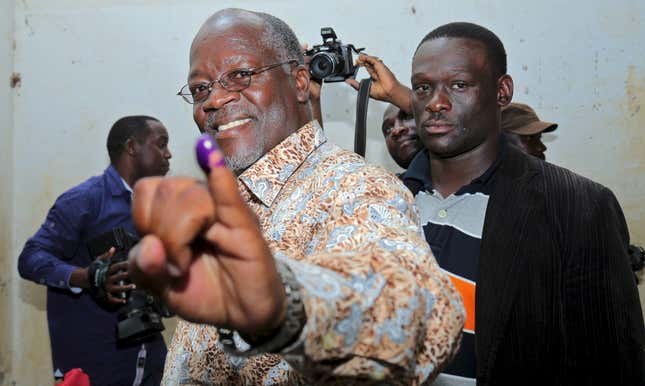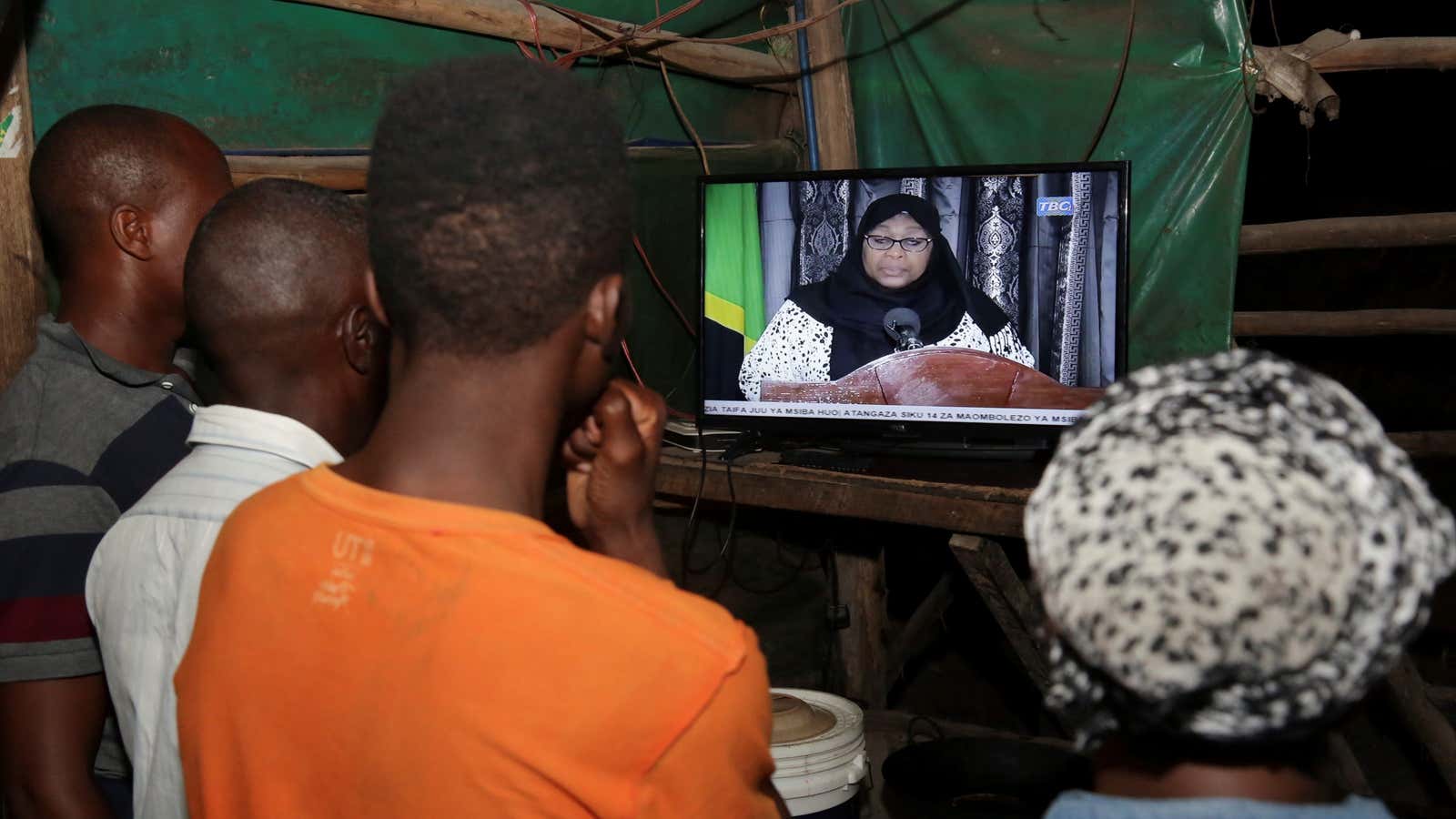On Wednesday (March 17), Tanzania’s vice-president, Samia Suluhu Hassan, announced the death of the president John Pombe Magufuli at age 61.
Magufuli’s passing comes after weeks of speculation regarding the president’s health, with his last public appearance on 27 Feb. The cause of death was attributed to “heart complications.” but rumors abounded that Magufuli, known for his skepticism of the threat of the coronavirus pandemic, had contracted Covid-19.
After declaring Tanzania coronavirus free in June last year, the country stopped implementing measures against the spread of the virus, instead promoting traditional medicines and exercise as remedies. As signs pointed to a deadlier second wave at the start of this year, the government acknowledged the virus’s presence and announced some measures against its spread.
Since becoming an independent republic in 1961, Tanzania has earned a reputation for its political stability and smooth transitions of power.
Now, all eyes are on Hassan.
Samia Suluhu Hassan becomes Tanzania’s next leader
Hassan was sworn in on March 19, and will serve until 2025, Magufuli’s remaining term, after he won a contentious second election in October 2020. Hassan is Tanzania’s first female president.
Tanzania has changed significantly under Magufuli. After succeeding Jakaya Kikwete in 2015, Magufuli was swift to crackdown on corruption and exploitation from investors, earning him the nickname “The Bulldozer.” He invested heavily in large-scale infrastructure projects, and the country saw a proliferation of new roads, ports, dams, and railways.

But while Tanzania has one of the fastest growing economies in Africa, business has struggled to flourish under high taxation and strict regulation. Magufuli’s populist approach earned domestic praise but alienated foreign investment.
His tough attitude extended to a clampdown on press freedom, human rights, and democracy. This led to the suspension of several loans from international donors and aid organizations.
A period of uncertainty
With Covid-19 hitting the economy hard, the country is already in a challenging period, which may worsen as it undergoes a transition of power. The World Bank forecast that GDP growth slowed to around 2% for 2020, but was expected to grow 4.5% and 5.5% in 2021 and 2022.
Omar Mjenga, the president and CEO for the Dar es Salaam-based Centre for International Policy-Africa, said that the country should expect a continuation of the president’s current policies: “The ruling party has a manifesto which runs for five years and we would expect the new president to follow these footsteps. A large part of that was infrastructure—this is the yardstick for progress for the government.”
But in a time of ambiguity, funding for such projects may be at risk. Honest Prosper Ngowi, a professor of economics at Mzumbe University, said Tanzania must assure foreign and local investors of the country’s stability: “It is too early to say whether this will disturb investment, but usually in a period of uncertainty, there is a ‘wait and see’ approach. The government must give reassurance to investors they are in safe hands.”
Hassan is a known figure in east African politics, and a frequent attendee of international community meetings. While Tanzania’s rapport with neighboring countries and semi-autonomous Zanzibar was under strain due to Magufuli’s nationalist policies, Hassan could be in a good position to restore these relations.
The main question now is how the country will handle the Covid-19 pandemic. Continued denialism is likely to harm Tanzania’s economy, and may extend or even worsen the country’s slump in tourism. Lingering travel restrictions are hindering the movement of goods and people, restricting growth across the East African trade bloc. With no plans to vaccinate its population as of yet, Tanzania could find itself ostracized if it continues with its current approach to the virus.
Hassan’s stance on Covid-19 is unclear, but on recent visits around the country, she reportedly addressed crowds without a mask and no social distancing measures.
Correction: An earlier version of this story mistakenly referred to Omar Mjenga as president of the US-based Center for International Policy. He is president the Dar es Salaam-based Centre for International Policy-Africa. This story has also been updated with news of Hassan’s confirmation.
Sign up to the Quartz Africa Weekly Brief here for news and analysis on African business, tech, and innovation in your inbox.
